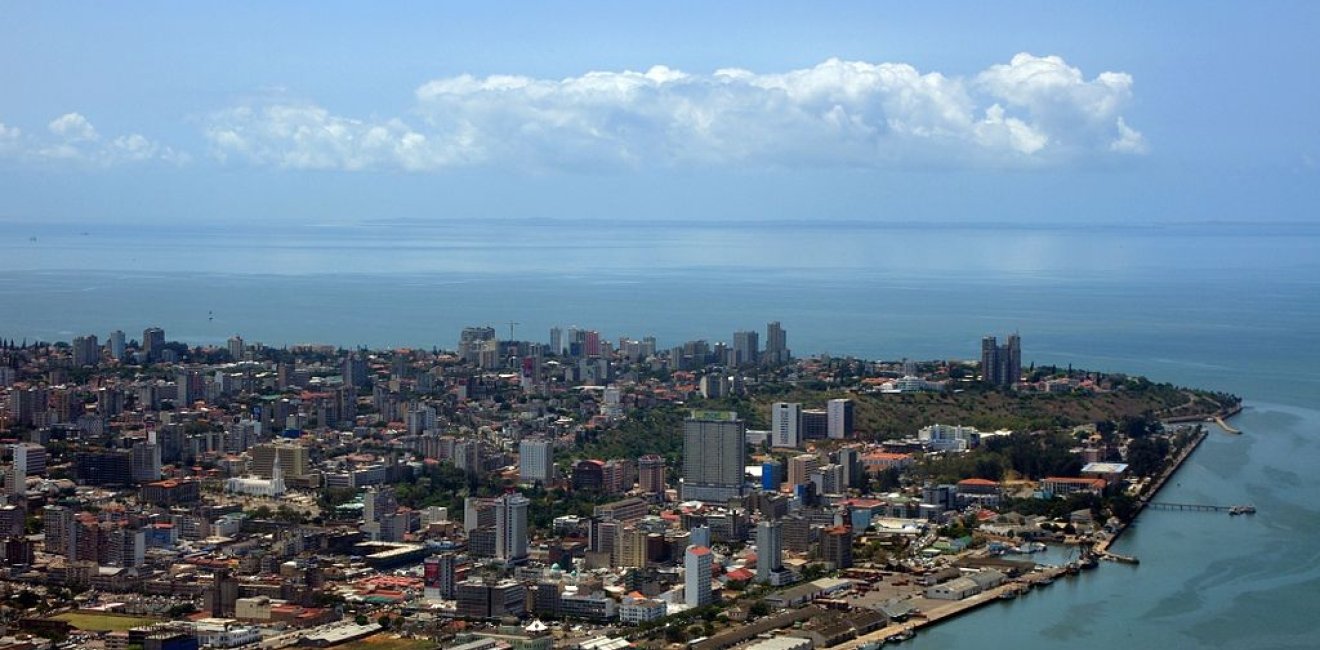
A blog of the Africa Program
In October 2017, an extremist group conducted a two-day attack on police stations in Mocimboa de Praia, Cabo Delgado in Mozambique, leaving seventeen dead. While tragic, the incident was not uncommon when examined through the lens of the escalating violent extremism across the continent, particularly in the Sahel region. In Mozambique, the intensity of its situation quickly escalated as the aforementioned extremist group continued to perpetrate attacks throughout Cabo Delgado province. Since its first attack in 2017, the group has killed over 400 Mozambican civilians and caused the displacement of another 100,000. A cloak of mystery enshrouds this extremist group and its operations; little is known about its origins, motivations, or leadership structure.
There is even a lack of consensus regarding its name; the locals refer to it variously as "al-Shabaab," "Swahili Sunnah," or "Ahlu Sunna wa Jama." Unlike most extremist groups that are extremely vocal in declaring grievances, this group has neither published an official ideology nor made a public statement regarding its objectives. However, many observers believe it is responding to the political and economic exclusion of ethnic minorities that is particularly prominent in the northern parts of Mozambique. Consumed by this vicious insurgency, Mozambique's government and civilians are looking for ways to stem the violence. The government has blocked the efforts of actors outside of the state apparatus, particularly those of media organizations, positioning itself as the primary responder to the devolving situation. Unfortunately, the government chiefly utilizes heavy-handed, reactionary military strategies that have proven ineffective. The government has not only failed to contain the violence, as it has spread from Cabo Delgado to sixteen other provinces, but its repressive actions have also alienated the civilian population.
As security forces have forcibly closed mosques, arbitrarily arrested citizens, and indiscriminately carried out violence, the locals' distrust of these state actors has grown. Civilians who have become sympathetic toward the rebels have offered support, sanctuary, and access to recruits, complicating the government's efforts in countering violent extremism (CVE). In order to effectively combat the rise of this insurgent group, the government should consider moving away from its exclusive reliance on kinetic action and toward investing more in community development programs that address the root causes of violence.
A major challenge to this approach, however, is that Mozambican civilians are inherently suspicious of government-led efforts due to human rights violations by security forces and the state's refusal to share accurate information about its efforts to combat the extremists. Better state engagement with civil society organizations (CSOs) could be particularly effective in implementing CVE efforts because of CSOs' legitimacy within communities. Furthermore, civil society groups' local roots position them closely to vulnerable populations that are at a higher risk of radicalization. Also, CSOs' existing relationships with and depth of knowledge of local communities bolster their perceived credibility. Lastly, CSOs provide an effective platform for developing "bottom-up" approaches to addressing structural weaknesses that are exploited by extremists. By leveraging the aforementioned advantages, civil society can play a substantial role in countering violent extremism in Mozambique in four ways:
1. Push for policy reform by the government: Civil society can directly try to influence the Mozambican government through numerous mechanisms. It can mobilize public support through local and national campaigns that aim to pressure the state to change its norms in a way that is responsive to community needs. Additionally, CSO leaders – if allowed to serve as advisors to the government –can provide local knowledge and expertise, facilitating the implementation of a "whole of society" approach to CVE. However, the Mozambican government likely would be resistant to collaborating with these groups and instead may attempt to restrict the sphere in which they operate. In this scenario, CSOs could utilize a "boomerang" strategy to catalyze change: they can participate in transnational advocacy networks to encourage external actors to pressure the Mozambican government to enact certain reforms, such as lifting travel bans to Cabo Delgado or investigating human rights violations.
2. Engage and empower youth and women: These two populations are frequently marginalized in Mozambique, and are thus the most susceptible to radicalization. It is vital for CSOs (and the government) to engage youth, as they experience the country's highest levels of unemployment. The resulting economic grievances often spur young individuals to join insurgent groups in order to secure some form of income. Engagement with women is also important, due to their influence in the home. Women can serve as "preventive protagonists" by detecting radicalization early and offering counter-narratives to ideologies expounded by extremists. By empowering youth and women, these can serve a positive role in CVE efforts due to their shared grievances and understandings, as well as their direct insight into which CVE initiatives might be the most impactful. Programs that could better engage youth include:
- Establishing youth peace councils or groups at local schools;
- Offering vocational and life skills training; and
- Providing civic engagement training.
These programs revolve around strengthening leadership, communication, and conflict resolution skills so young individuals can contribute to peace and reconciliation processes. For women, impactful programs could include:
- Offering bystander intervention instruction, especially for women working in the health, security, and education sectors;
- Establishing microcredit and microlending programs; and
- Fostering community networks of women.
3. Facilitate community dialogue and civic participation: CSOs can promote dialogue within and across communities in Mozambique by creating a forum to share experiences. When citizens feel they have a safe space for discussion, they might be more inclined to voice their opinions or seek to understand others' perspectives. Some examples of potential avenues for strengthening civil society involve engagement in Mozambique are:
- Holding general assemblies to identify community problems and design solutions;
- Including prominent community members, such as traditional or faith-based leaders, in the formulation of local and national government policy; and
- Utilizing the media to encourage civic engagement and mainstream moderate narratives.
4. Support rehabilitation, reintegration, and reconciliation programs: While Mozambican civil society is well-positioned to pursue CVE preventative measures, it also has the ability to address the aftermath of violent extremism. Specifically, CSOs can promote a wide variety of initiatives, both at an individual and societal level, to rehabilitate and reintegrate former perpetrators of violence and promote community reconciliation. Rehabilitation efforts may take the form of counseling or psychological support, family-based programs, and civic networks to connect ex-combatants. To facilitate reintegration, CSOs could advocate for amnesty programs for youth who took up arms and (if provided with appropriate resources) offer vocational skills training and employment opportunities. Finally, CSO-backed reintegration efforts should seek to heal wounds caused by violence by bolstering shared understandings and non-violent conflict resolution skills. Examples of some initiatives might include truth commissions, problem-solving workshops, conflict management training, and collaborative activities in sports, music, and arts.
In order to successfully combat the devolving security situation, Mozambican society must come together and coordinate efforts across sectors (public and private) and levels (local and national). The biggest barrier to CSOs engaging more in CVE efforts is the government's apprehension of including these actors in the political space. However, the best way forward for countering rising violent extremism in Mozambique requires close collaboration between the government and civil society. Without such partnership, the violence will only be managed, never eliminated.
Stephanie Lizzo is a former Africa Program intern during the spring 2020 term. Stephanie is a rising senior at the University of Maryland, College Park.
Author

Junior Policy Analyst, the Organization for Economic Co-operation and Development (OCED).

Africa Program
The Africa Program works to address the most critical issues facing Africa and US-Africa relations, build mutually beneficial US-Africa relations, and enhance knowledge and understanding about Africa in the United States. The Program achieves its mission through in-depth research and analyses, public discussion, working groups, and briefings that bring together policymakers, practitioners, and subject matter experts to analyze and offer practical options for tackling key challenges in Africa and in US-Africa relations. Read more

Explore More in Africa Up Close
Browse Africa Up Close
The Innovative Landscape of African Sovereign Wealth Funds



